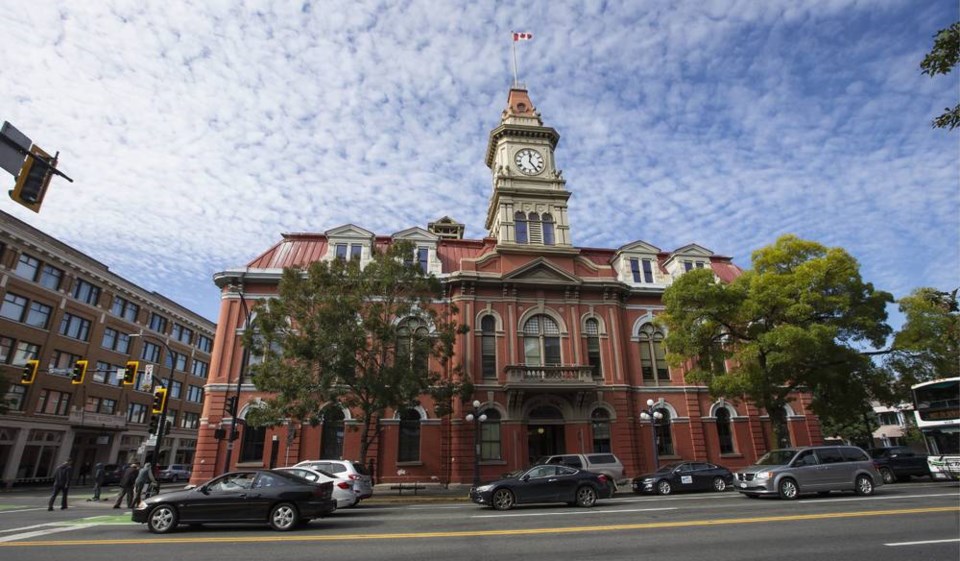What are the lessons, if any, we might take from Stephen Andrew鈥檚 decisive victory in the Victoria byelection on Saturday?
Was it a sweeping condemnation of everything council has done in the past couple of years, from bike lanes to encampments in the parks to cheap shots at already overstressed police officers? Was it a reflection of the sorry state of downtown Victoria, the heart and soul (until recently, that is) of the entire region?
Or maybe it was a blip, nothing but a flesh wound, one might say. Was Andrew鈥檚 trouncing of the Together Victoria candidate, Stefanie Hardman, entirely predictable because byelections usually go against the people in power?
Was the result of no significance at all, because only 17.5 per cent of eligible voters bothered to cast ballots? If we follow that thinking, then the byelection can be ignored. All byelections, in fact, because most see only a small number of voters.
What you believe about the byelection will surely depend on what you believe about the state of Victoria today. You might be appalled, and you might be happier than ever, because finally councillors are doing what you believe needs to be done.
With all of that in mind, a few thoughts on the election outcome.
First, the big winner: Stephen Andrew. The big loser: Stephen Andrew.
He captured 56 per cent of the vote, with 6,937 ballots cast for him. That was the easy part. Now he will take a seat at a council table that, many would argue, is dysfunctional, and he will have few allies. There are many battles ahead.
Hardman took 3,783 votes, or 30.6 per cent. That hardly represents a stunning rejection of Together Victoria; almost a third of voters believe that council has been doing things the way they are meant to be done.
Left behind were nine other candidates, including some who should be urged to run in the regular municipal election in 2022. They are qualified, they are smart and committed, but they lost as voters committed their support to one of the two front-runners. The low numbers for the also-rans should not be seen as a rejection of their candidacies, but rather a reflection of this byelection.
It was the first chance voters had to express their opinions on council鈥檚 work this term, and while the low turnout is typical in byelections, one would think each candidate would be affected in the same way. That Andrew, who came in ninth in the 2018 election, would get such a strong endorsement can probably be explained quite simply: While many voters who supported Together Victoria in 2018 came back, many more simply stayed away.
We鈥檝e seen this phenomenon in provincial politics. In the sa国际传媒 Liberal sweep of 2001, NDP supporters didn鈥檛 shift to the Liberals; they simply didn鈥檛 vote. This year, Liberals stayed away. In both cases, voters could not support their preferred candidate but could not bring themselves to vote for the rival.
No matter what, let鈥檚 hope the arrival of Andrew will create a more balanced council, one that is less likely to waste time and money chasing after ideas that are outside municipal jurisdiction. One that supports city employees. One that respects all residents, not just a chosen few. One that rejects free lunches and would not dare talk about raising council remuneration at a time when so many Victorians are suffering.
Too often in the past couple of years, it has been hard to understand why certain decisions were made, which has raised fears that councillors were working on behalf of special-interest groups. Those fears helped bring Andrew to the council table.
While it can be fun to watch kids in a candy store, the truth is that we expect councillors to be responsible adults. We need to see more inclusive decision-making. Councillors need to be accountable for their actions.
The state of Victoria council today is a reminder that the move for four-year terms for municipal councillors was a massive mistake. It is simply too long. The provincial government should revisit the decision soon, and give municipalities across the province a more effective system before the scheduled 2022 vote.
Four-year terms were a bad idea. Let鈥檚 fix it.
